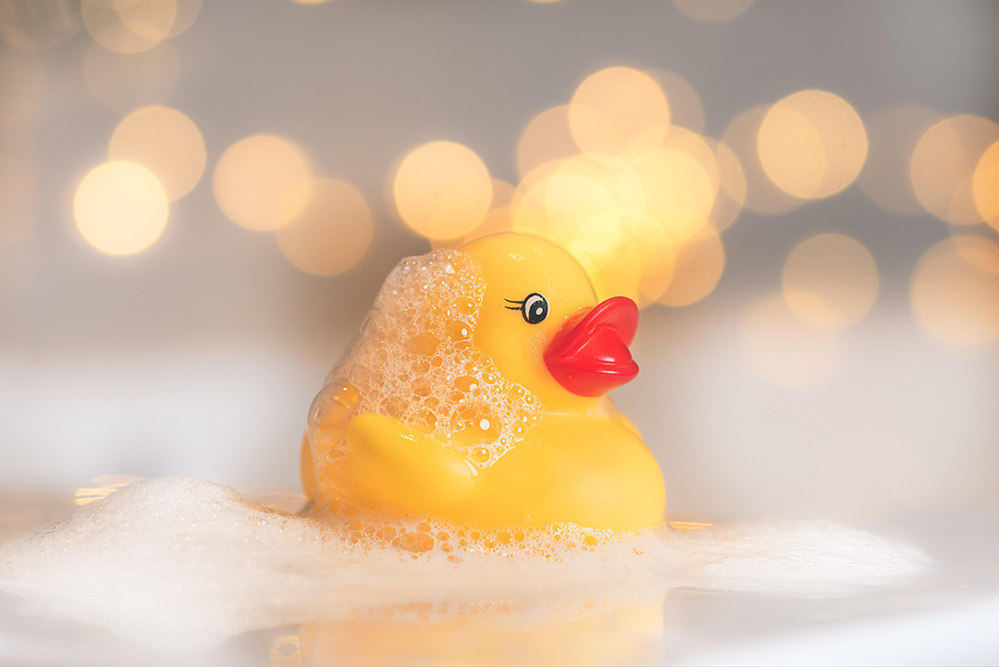
(Pixabay/Ylanite Koppens)
Every member of a religious community seems to be a natural at caring for others. We by no means have a corner on the market, but we do it in ways unlike any others I've ever witnessed. Although unspoken, all of us live an "extra vow" of care. Look around — there are so many needs, and we've done well meeting them.
That led me to this question: How do I take care of myself? It sounds like a simple question, and maybe one that doesn't need asking, but a series of recent events brought it to the forefront for me.
- Winter saw a sleet storm unlike any I've ever experienced, dropping about four inches of icy slop. The snowblower provided by my landlord (which can handle everything) sputtered and tried its very best. The usual half-hour job took most of a morning. My shovel gave itself up, the metal literally bending and folding in on itself. I knew that my body would remind me of the workout with a few aches and pains, and it did.
- My canine companion died just days before her 15th birthday. She had been with me through the death of both my parents and moving a housemate to a memory care facility. Packing up her food and treats and toys did little to dry my tears. I sobbed as I dropped all of it off at local shelters for others to enjoy as she had.
- While I am working in the same institution, my ministry responsibilities are different than they have been in previous years. Every day, I'm asked to do things I've never done before. While I enjoy a challenge, having to start from scratch for everything brings a bit of stress and uncertainty. I've never said "I don't know" so many times in my life as I do now!
- My spiritual director of 25 years moved into hospice care. From my perspective, it happened very quickly — within a couple weeks of us last working together, and the final emails are messages I will treasure forever.
Each of these examples, and so many other day-to-day happenings, made me stop and ask myself how I was taking care of myself. Yes, I have support people and systems in place, but I started to think about the "little things" that needed to happen in my life.
Advertisement
Here's a short and incomplete list of how I've started to care for myself:
- Being conscious of water scarcity, I tend to take quick showers with a water-saver faucet head. That said, I've started to take the occasional bubble bath. A leisurely soak relaxes my body and helps ease the aches and pains from overwork.
- Grocery stores often have small bunches of fresh cut flowers for purchase. From time to time, I treat myself to a colorful collection of whatever looks fun. Having a small vase of flowers to see and smell brings a smile every time I encounter them.
- I'm making choices about what I do and when. Some of the choices are difficult. I withdrew from an event to which I had committed, with more than enough notification so as to not disrupt things. I knew it was important for me to have some space, and the nap I took did me a world of good.
- And — in what's probably the most difficult for all of us who live the "extra vow of care" — I took up offers from people who reached out to me. When the young couple across the street saw me shoveling again, they told me they would take care of what the city plows would leave behind so I could get out in the morning without having to get up early. I let them.
Of course, some well-meaning people wondered if I was being selfish. I didn't appreciate the question and wondered: When did taking care of oneself become a selfish act? What happened to the idea that we need to take care of ourselves in order to best serve others?
A very real problem is that well-meaning people literally work themselves to death, and in some cases, when they do die, their vital work goes with them because no one else collaborated, or (gasp) was allowed to.
The creation story speaks of God resting on the seventh day. Jesus visited family and friends and the Gospels tell us of him often withdrawing to pray alone, his way of caring for himself.
Until I started to step back a bit and "take care," I didn't realize how worn out I was. After a month of "taking care," I noticed a few things.
- My interactions are gentler. I'm not just agreeing or trying to avoid conflict; rather I have regained perspective.
- I'm not taking everything personally. Each of us brings all "our stuff" to every interaction. It's important to own what's ours but equally important not to "take on" anything from anyone else.
The biggest insight is that now I'm taking more time to notice. For example, I look for the birds that are singing as I head to the car or I linger a little longer if a piece of Scripture speaks to me in prayer.
My challenge to everyone is to explore what living our unspoken vow of care means — not only as we minister to and with others, but as we live our personal lives.





